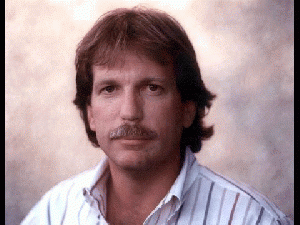Reprinted from Consortium News
Jeff Leen, the Washington Post's assistant managing editor for investigations, begins his renewed attack on the late Gary Webb's Contra-cocaine reporting with a falsehood.
Leen insists that there is a journalism dictum that "an extraordinary claim requires extraordinary proof." But Leen must know that it is not true. Many extraordinary claims, such as assertions in 2002-03 that Iraq was hiding arsenals of WMDs, were published as flat-fact without "extraordinary proof" or any real evidence at all, including by Leen's colleagues at the Washington Post.
A different rule actually governs American journalism -- that journalists need "extraordinary proof" if a story puts the U.S. government or an "ally" in a negative light but pretty much anything goes when criticizing an "enemy."
If, for instance, the Post wanted to accuse the Syrian government of killing civilians with Sarin gas or blame Russian-backed rebels for the shoot-down of a civilian airliner over Ukraine, any scraps of proof -- no matter how dubious -- would be good enough (as was the actual case in 2013 and 2014, respectively).
However, if new evidence undercut those suspicions and shifted the blame to people on "the U.S. side" -- say, the Syrian rebels and the Ukrainian government -- then the standards of proof suddenly skyrocket beyond reach. So what you get is not "responsible" journalism -- as Leen tries to suggest -- but hypocrisy and propaganda. One set of rules for the goose and another set for the gander.
The Contra-Cocaine Case
Or to go back to the Contra-cocaine scandal that Brian Barger and I first exposed for the Associated Press in 1985: If we were writing that the leftist Nicaraguan Sandinista government -- the then U.S. "enemy" -- was shipping cocaine to the United States, any flimsy claim would have sufficed. But the standard of proof ratcheted up when the subject of our story was cocaine smuggling by President Ronald Reagan's beloved Contras.
In other words, the real dictum is that there are two standards, double standards, something that a careerist like Leen knows in his gut but doesn't want you to know. All the better to suggest that Gary Webb was guilty of violating some noble principle of journalism.
But Leen is wrong in another way -- because there was "extraordinary proof" establishing that the Contras were implicated in drug trafficking and that the Reagan administration was looking the other way.
When Barger and I wrote the first story about Contra-cocaine trafficking almost three decades ago, we already had "extraordinary proof," including documents from Costa Rica, statements by Contras and Contra backers, and admissions from officials in the Drug Enforcement Administration and Ronald Reagan's National Security Council staff.
However, Leen seems to dismiss our work as nothing but getting "tips" about Contra-cocaine trafficking as if Barger and I were like the hacks at the Washington Post and the New York Times who wait around for authorized handouts from the U.S. government.
Following the Money
Barger and I actually were looking for something different when we encountered the evidence on Contra-cocaine trafficking. We were trying to figure out how the Contras were sustaining themselves in the field after Congress cut off the CIA's financing for their war.
We were, in the old-fashioned journalistic parlance, "following the money." The problem was the money led, in part, to the reality that all the major Contra organizations were collaborating with drug traffickers.
Besides our work in the mid-1980s, Sen. John Kerry's follow-on Contra-cocaine investigation added substantially more evidence. Yet Leen and his cohorts apparently felt no need to pursue the case any further or even give respectful attention to Kerry's official findings.
(Note: You can view every article as one long page if you sign up as an Advocate Member, or higher).






